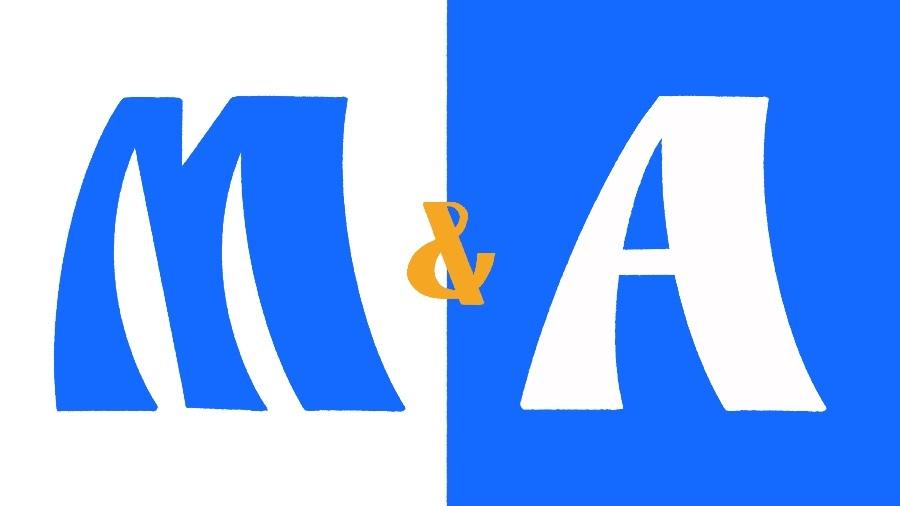For venture-backed startups, it’s historically rather common to wind up selling to another startup. Lately, however, the pace of these deals has been slowing down.
In all of 2023, just over 650 funded startups globally were acquired by other funded startups, per Crunchbase data, the lowest total in three years. This year, meanwhile, is off to a similarly slow start, as charted below:
Smaller deals
Disclosed deal sizes have also been skewing smaller. True, there are exceptions, like Databricks’ $1.3 billion purchase of MosaicML last summer. But overall, the median disclosed-size deal in 2023 was around $30 million, down from about $40 million in 2022.
The disclosed numbers provide a very limited view, however. That’s because in the vast majority of these deals, buyers don’t reveal what they paid.
Even so, it’s likely few are home-run exits. Generally speaking, when a startup buys another startup during a tough fundraising environment, the acquired company’s founders and investors aren’t getting a huge return on their investment, observed Healy Jones, vice president of financial strategy at startup advisory firm Kruze Consulting.
Rather, in an environment of falling startup valuations across many sectors, the goal for a sale tends to be more modest. If an acquisition can make investors whole, generate some return for founders, and provide employees with good jobs going forward, it’s commonly considered worth pursuing.
Big acquirers aren’t biting
Given that overall M&A activity is down, the actual share of startup acquisitions where the acquirer is another startup remains pretty high.
Since the beginning of last year, for instance, more than 80% of acquired startups — roughly 766 companies — sold to another startup, per Crunchbase data. Just 142 startups sold to public companies.
Large-cap technology companies, in particular, have not been active startup buyers in recent quarters. Selling to one of the “Big Five” most valuable U.S. tech companies — Apple, Microsoft, Google, Amazon and Nvidia — is no longer a realistic avenue to exit.
While they don’t lack cash, antitrust concerns are a big worry for large-cap acquirers these days. Even when they do announce large purchases — like Adobe’s planned acquisition of Figma — there’s a risk that regulators will object. Startups, by contrast, are far less likely to attract regulatory scrutiny for their M&A forays.
Large-cap acquirers also have other reasons for holding back on M&A dealmaking, Healy observed. Taxes are a big issue, as large companies don’t want to open themselves up to new avenues of taxation. “There’s a reason Apple is one of the most profitable companies in the world and they pay very little in taxes,” he said.
Because public company valuations are so dependent on meeting or exceeding analyst expectations, there’s also reticence to make M&A moves that could jeopardize earnings predictability.
Startups are stuck with startups
Just like a game of musical chairs, startups looking for a partner have limited options. When cash is running low, and an acquisition looks like the most promising strategy, another startup may be the only willing and available buyer.
While they’re probably not paying top dollar, one upside is that there’s still opportunity for the acquiree to see its technology and products scale — albeit maybe under a new name.
Related Crunchbase Pro list
Related reading:
- US Tech Giants Have Scuttled Over $70B In M&A Deals Following EU, UK Pushback
- Rough Ride: M&A Dropped 31% For VC-Backed Startups In 2023
- Many Boom Time Startup Acquisitions Have Worked Out Badly
Illustration: Dom Guzman

 10 months ago
54
10 months ago
54